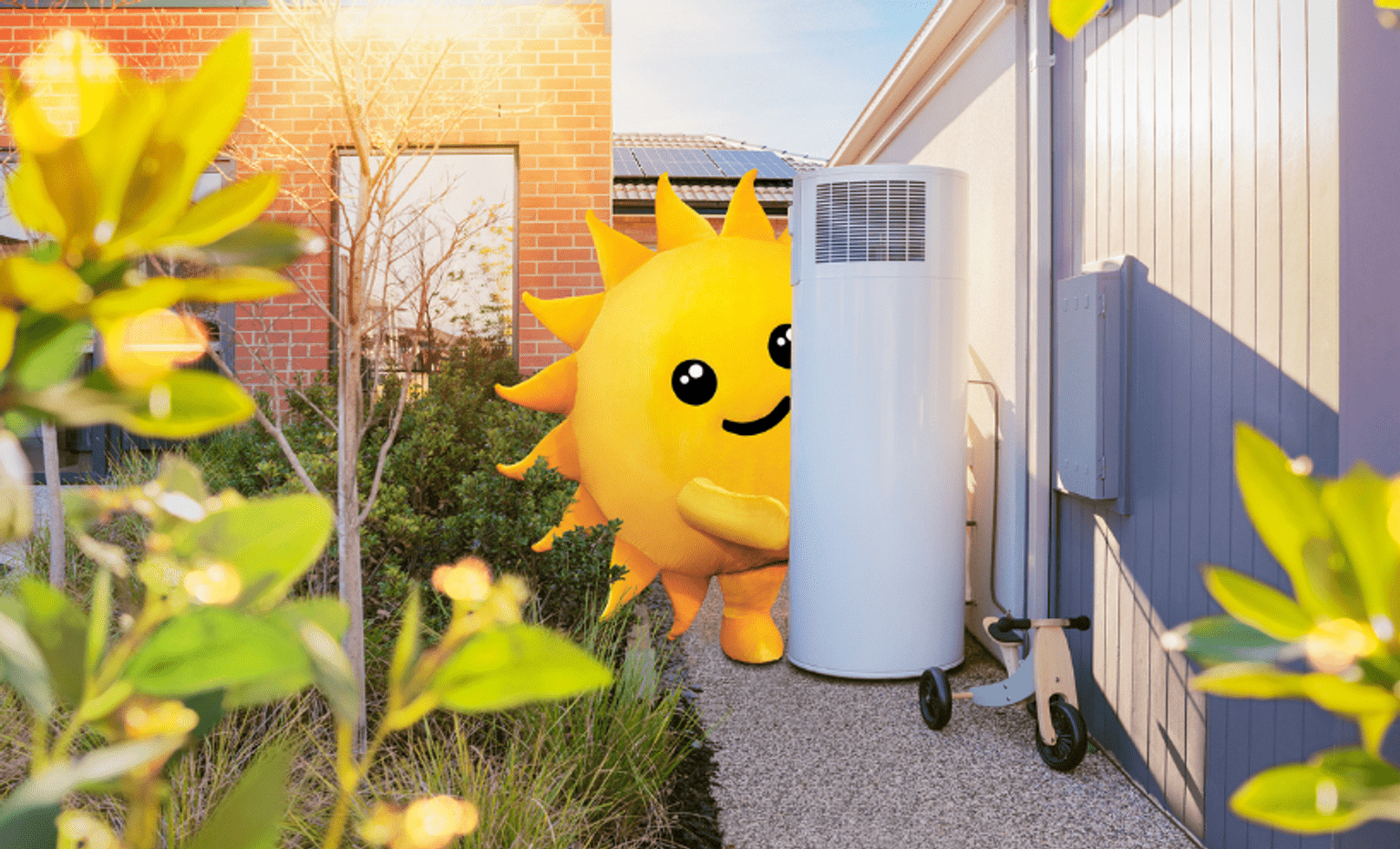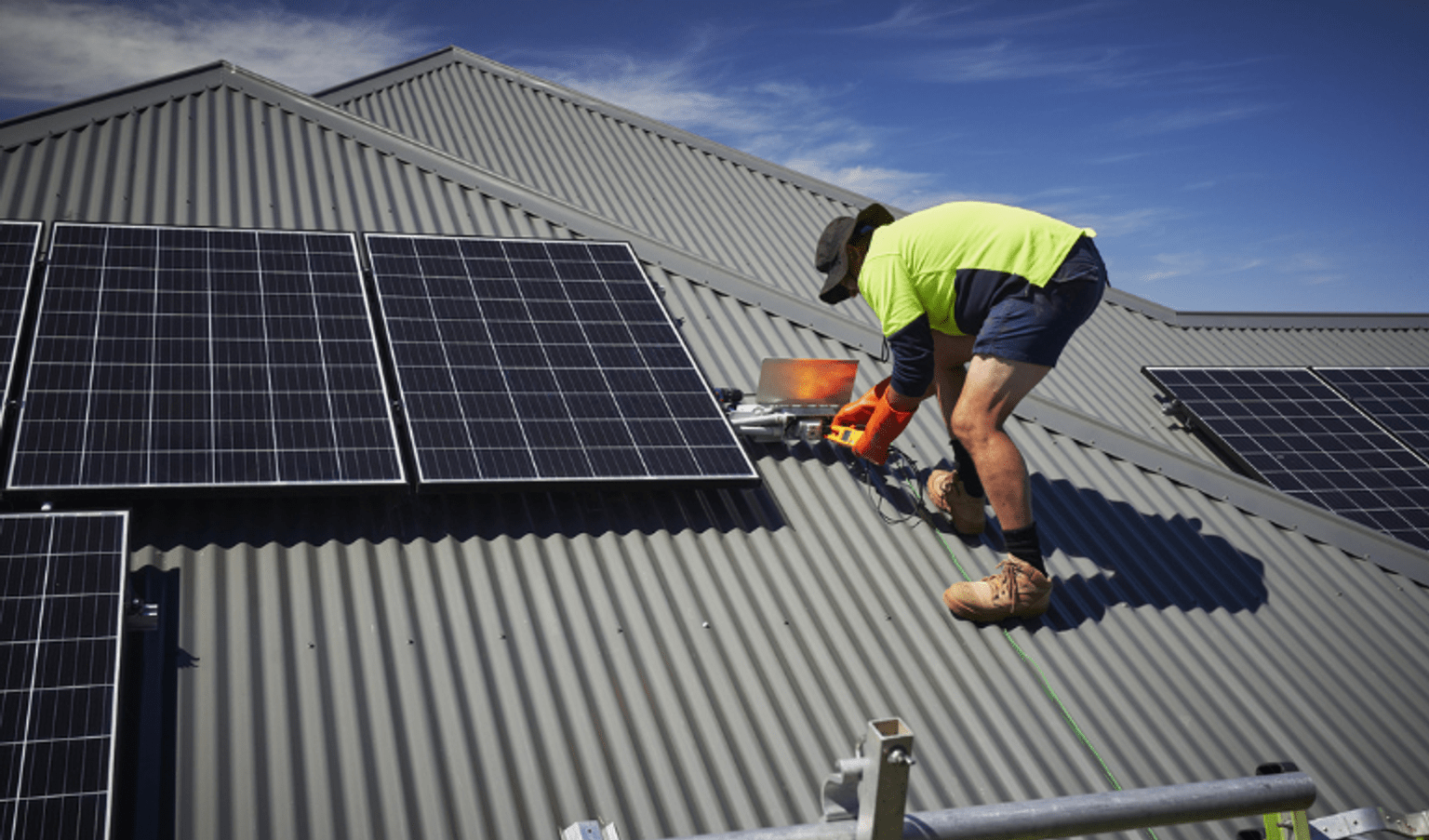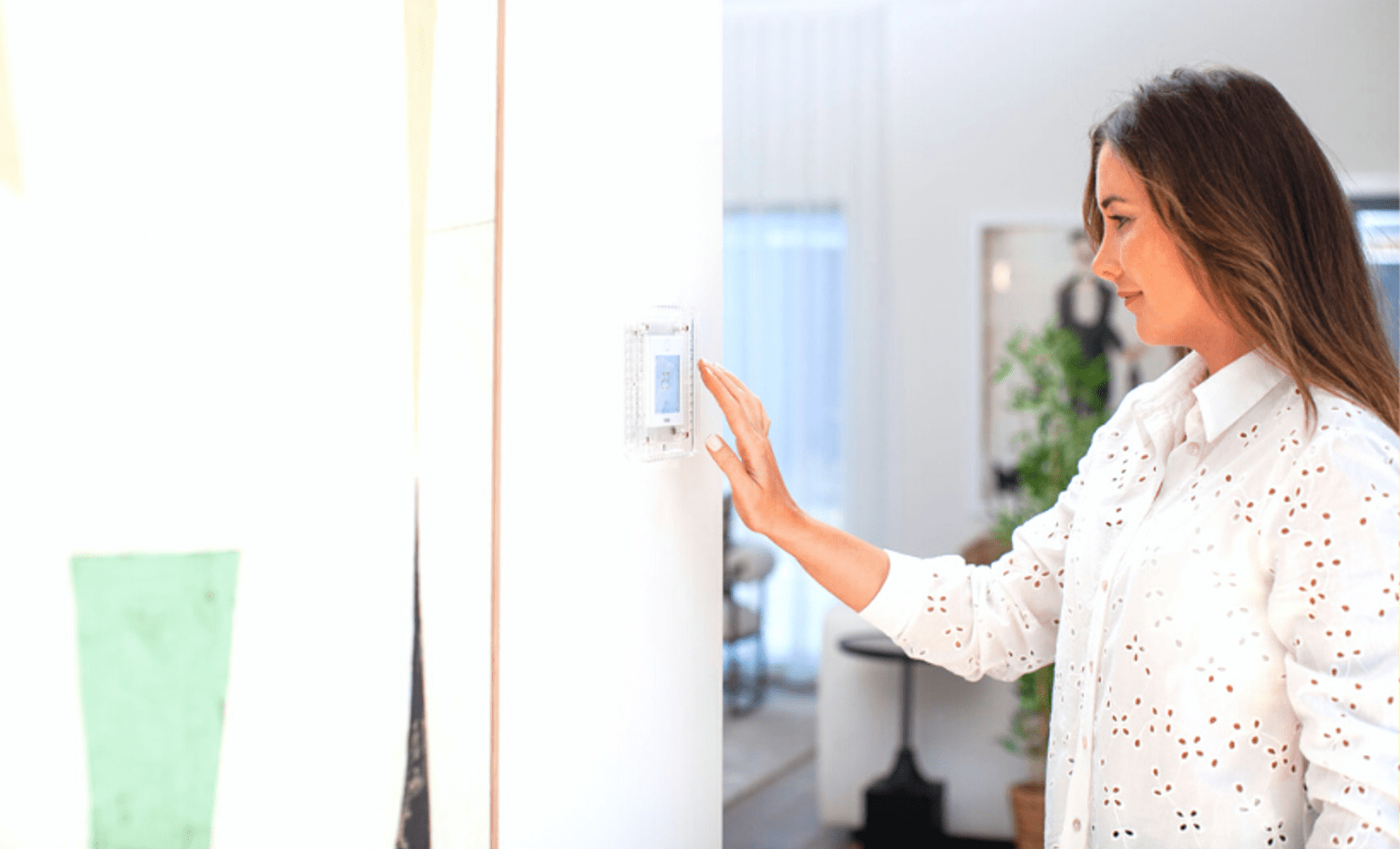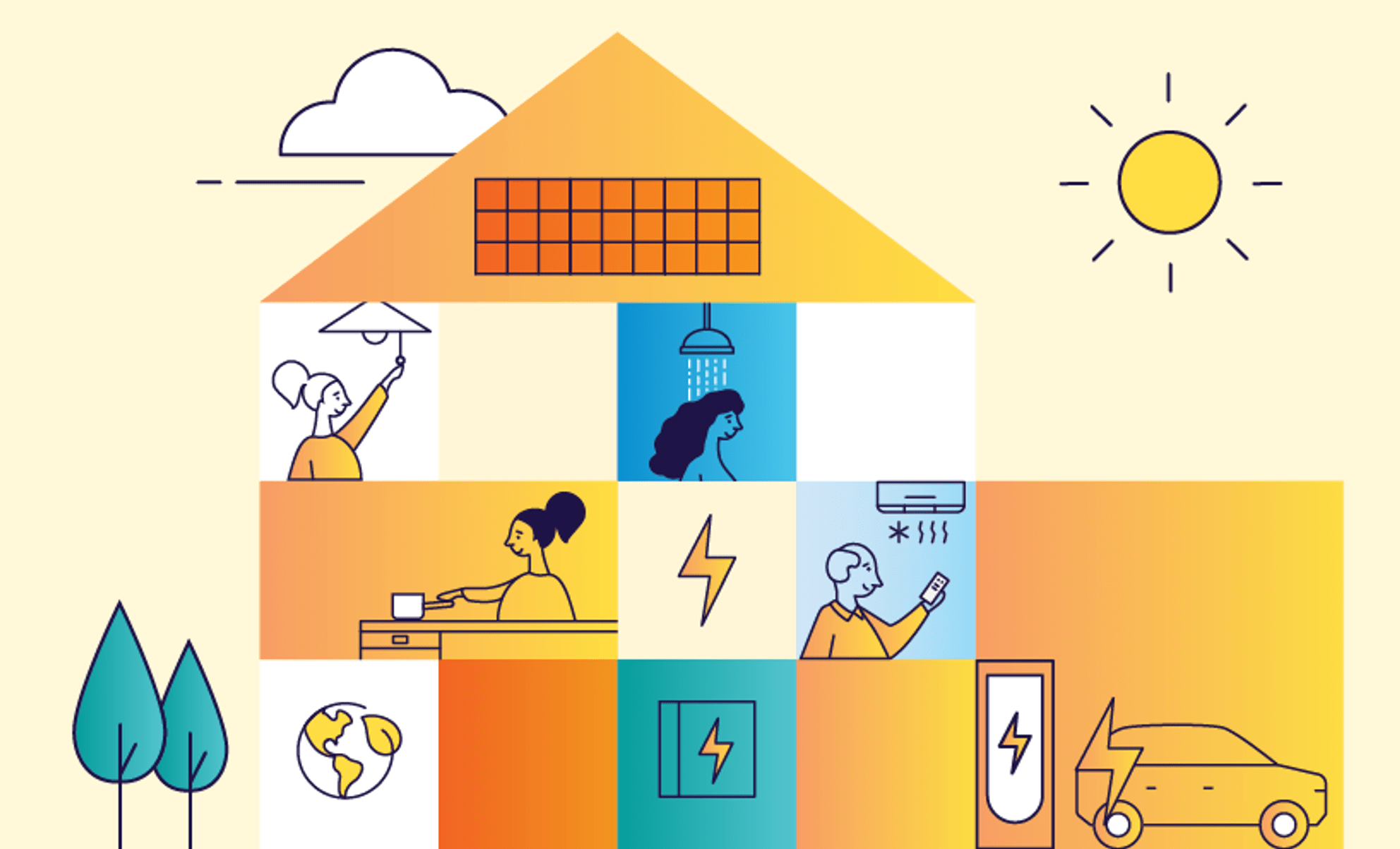1. Make the most out of your daytime power
As solar absorbs its energy from the sun, make the most of this free electricity by using it during the day as it’s being generated.
Start by using your most energy-intensive appliances like your dishwasher and washing machine during the day. With the development of smart appliances, it’s now possible to schedule wash cycles to start automatically if you're not home during the day. By maximising the use of your solar electricity throughout the day, you can reduce or avoid the need to buy energy from your retailer at night.
Make the most of your solar
Find out how you can pay less for energy with solar and keep your system working efficiently.
2. Upgrade to an electric energy-efficient hot water system
Heating water typically accounts for 20% of energy use in the home. By installing an energy efficient system, you can significantly reduce your energy bills. Hot water heat pumps use less energy to heat water at home and have become the leading choice in energy-efficient electric systems in recent years.
The best part is, if you have rooftop solar, an electric hot water system such as a heat pump, can be run from the energy generated by your panels – saving you even more on energy bills.
With solar and hot water rebates under the Solar Homes Program, eligible households can save $2,400 when installing both solar panels and an energy efficient hot water system.
When it comes time to upgrade your hot water system, opt for an energy efficient system. Learn more about hot water heat pumps and how to select the right hot water system for your home.

Hot water rebate
Hot water rebates of up to $1,000 are available for eligible heat pump and solar hot water products. If you select a locally made product, you could be eligible for a rebate of up to $1,400.
3. Invest in a solar battery and store your unused solar power
Solar batteries work by storing energy produced by your solar panels for later use, this means it keeps excess energy at your home instead of sending it back to the grid.
If your solar panels produce more electricity than you need, the excess energy goes towards charging the battery. Later, when your solar panels aren't producing electricity, you can draw down the energy you stored earlier in your battery, to use electricity and appliances at night.
Most households with only solar panel (PV) systems use around 25% of the energy they generate while systems with a solar battery use around 50 to 60%.
Before applying for a solar battery loan consider your energy use and financial situation to make the right choice for your home.
4. Maintain and take care of your solar system
We recommend having your system serviced at least once every two years by a licensed A-Grade electrician to keep it performing well. You can contact your original installer or look for a specialist to provide this service.
You can also check your energy bill and inverter to confirm how much energy is being generated or exported, and track this against expectations for your system and current weather conditions.

How to clean and maintain solar panels
Learn how to look after your solar PV system, and when to call in the experts.
5. Take advantage of other discounts
Many energy retailers in Victoria offer feed-in tariffs above the minimum rate. A feed-in tariff is a payment to a householder for exporting their surplus solar power back into the grid.
You can compare energy plans through Victorian Energy Compare and shop around for the best one to suit your needs. This free, independent tool helps ensure you are on the best energy deal and not paying more than you need to for electricity. On average across last year, people who use the Victorian Energy Compare website were able to save $240 by switching to the best priced energy offers.
Another way to further lower your energy bills is by upgrading your appliances over time. You can start with appliances that use the most gas. In most houses, this is heating – and then hot water systems and cooktops.
The Victorian Energy Upgrades website can help you find discounts on reverse cycle air conditioners, induction cooktops and other energy saving appliances. They also offer discounts on household upgrades such as window glazing to help you save more.
Updated




